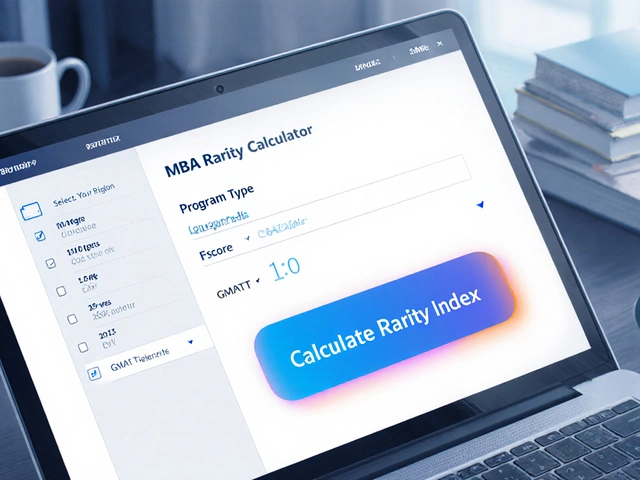
Ask almost anyone and they'll say government jobs are about as secure as you can get. But is that reputation really accurate? Sure, folks joke that you have to blow up the building just to get fired, but the reality is a bit more complicated. Government gigs are generally stable, but they're not untouchable. If you mess up badly or do certain things, you can absolutely lose one.
Let’s get real about why these jobs seem so safe. The rules are tighter, and hiring is often a slow, paperwork-heavy process. This means firing someone isn’t snap-of-the-fingers easy. There’s a ton of red tape, unions are often involved, and you usually get a bunch of warnings before someone shows you the door. But don’t get too comfortable—there are real situations where people lose their government jobs, even if it takes a while.
If you landed one of these positions, understanding how the process works can help you protect yourself. Knowing your rights, what the most common mistakes are, and what bosses watch out for can make all the difference. The job might be safer, but it’s not bulletproof.
- Why Government Jobs Seem So Secure
- Typical Reasons Someone Loses a Government Job
- How the Termination Process Works
- Myths vs. Reality: Is It Really That Safe?
- Warning Signs and What You Can Do
- Tips for Keeping Your Government Job
Why Government Jobs Seem So Secure
Ever heard the phrase, "once you’re in, you’re set for life?" That’s because government job security has a reputation. Unlike most private sector gigs, public sector jobs are set up with rock-solid protections. It’s not just talk—there’s actual policy and structure behind it. Most government workers are covered by strict labor laws, and some are protected by collective bargaining agreements or unions. That means you get a big safety net.
One main reason these jobs are hard to lose is the hiring process itself. Selection usually happens after tough exams, background checks, and interviews, so the system expects employees to stick around. Firing someone is a major event, with piles of paperwork and multiple people involved. It’s not as simple as a boss saying, “You’re out.” You get hearings, warnings, and sometimes a chance to appeal. Compare that to many private companies, where someone can be shown the door and cleared out by the end of the day. That almost never happens in the public sector.
Government job security also comes from the rules about layoffs. If a position is eliminated, there are usually policies to help employees transfer to other government roles instead of just letting them go. There are even preferences for internal candidates when jobs open up. Also, it’s not like business is suddenly going to dry up—schools, police, and government offices don’t disappear when the economy dips. People keep needing public services, so most government jobs aren’t as easily cut when times get tough.
- Unions and Regulations: Government jobs often have union support, which means there’s an added layer of protection if you face trouble.
- Due Process: Every serious action gets reviewed, documented, and you usually have a chance to respond before anything final happens.
- Transparency: There are written rules for almost everything—hiring, firing, promotions, you name it.
If you look at the numbers, it backs this up. According to the U.S. Bureau of Labor Statistics, the annual layoff or discharge rate in government is about 1%, way lower than the private sector average, which can hit 2-3% or more depending on the year. So yeah, government employees really do tend to hang onto their jobs much longer.
Typical Reasons Someone Loses a Government Job
So, what actually gets people fired from a government job? It’s not just some mystery code. There are clear reasons someone ends up on the chopping block, even in roles everyone assumes are safe. Here’s what can put your government gig in danger.
First up, serious misconduct. That means stuff like stealing, fraud, or showing up to work drunk or high. If you’re caught doing shady things, even the strongest union won’t save you. Another big one is breaking workplace policies—this could mean harassment, violence, or bringing in anything illegal to the office.
Chronic poor performance is a huge factor too. Just because you passed the entrance exam doesn’t mean you’re set for life. Regularly missing deadlines, messing up assignments, or putting in obviously lazy work can get you written up and then eventually terminated. Agencies usually have to document the problem, give you warnings, and offer a chance to improve. But if there’s no progress, they can actually show you out the door.
Here’s a quick breakdown of the big reasons:
- Serious misconduct (theft, bribery, fraud, violence)
- Consistently poor job performance
- Major attendance issues (chronic absences, unexplained leaves)
- Violation of safety rules or ethics codes
- Failing background checks after hiring (yes, it happens even after you start)
- Unauthorized leaks of confidential information
And here’s a wild fact: according to a 2023 US Office of Personnel Management report, only about 0.5% of permanent federal employees were removed for misconduct or poor performance each year, while over half of those who lost their jobs did so within their first year of service. This means the risk is a lot higher for newbies who are still on probation.
If you’re in a government job, don’t ignore emails about code of conduct or skip out on performance reviews. Those are tracked. Repeated slip-ups make it way easier for agencies to justify kicking you out. And, of course, the higher up you go, the more your mistakes might get noticed.
So, while government job security is real, it doesn’t make you immune. Staying alert to these common pitfalls can help you hold onto that coveted gig.
How the Termination Process Works
If you think losing a government job is a quick process, think again. There are rules and steps everyone has to follow, and it’s not as easy as a boss just saying, “You’re out!” For most state and federal positions, whether you’re a clerk or an analyst, the steps are similar.
Usually, it all starts with performance reviews or an incident that breaks the rules. Here’s what the typical process looks like for government job termination:
- Written Warnings: If you’re underperforming or messed up, you almost always get a written warning first. Sometimes, you get more than one, with steps to improve written out for you.
- Probation or Improvement Plans: If things don’t change, you may be put on a Performance Improvement Plan (PIP) or probation period. You’ll be watched closely, and you’ll have a list of stuff you need to fix within a certain period.
- Formal Hearing or Review: Next up, if you’re not improving, most government departments have a formal review or hearing. This is a bit like court—there’s usually a panel, sometimes a union rep, and you can bring your own case.
- Decision and Appeals: If they decide to fire you, it doesn’t usually end there. Most agencies allow an appeal, so you can challenge the decision. It can take weeks or months.
Here’s a quick example. In many U.S. federal jobs, managers need to send at least one written warning, then put the employee on a 60- to 90-day improvement plan, before they can even recommend firing. During this time, you’re not just left hanging—they’ll offer help like training or mentorship.
Sometimes, if you do something really serious—like commit a crime, gross misconduct, or falsify records—you can be put on administrative leave immediately. But for regular stuff like poor performance or attendance issues, the steps above are almost always followed.
Take a look at this rough timeline based on real government agencies:
| Step | Average Duration |
|---|---|
| First Written Warning | 1-2 weeks after incident |
| Performance Improvement Plan | 60-90 days |
| Formal Review/Hearing | 2-4 weeks after PIP |
| Appeal Process | 1-3 months |
These steps and timelines are not just for show—they’re there to make sure people aren’t unfairly fired. But if you keep ignoring those warnings, the bureaucracy does eventually catch up. Understanding the termination process can help you react early and protect your position.

Myths vs. Reality: Is It Really That Safe?
Okay, let's talk straight—there’s a ton of rumors floating around about government job security. Some folks say you’re set for life once you get in, while others swear they've seen people kicked out for barely anything. The truth sits somewhere in the middle.
Here’s the myth: Government job termination almost never happens. People imagine you can’t be fired unless you do something totally over the top, like break a major law. While it's harder to get the axe than in most private jobs, it’s not impossible—and far from rare. In fact, a U.S. Office of Personnel Management (OPM) report from 2023 showed that over 11,000 federal workers lost their jobs that year. That may be a small number compared to the millions employed, but it definitely happens.
Let’s break down some real facts that tell a different story:
- If you’re still on probation (usually the first year), you can get let go pretty easily—sometimes with little warning.
- Misconduct, repeated poor performance, or breaking workplace policy can all be grounds for losing a government job.
- There are definitely rules in place that protect workers, like appeals and reviews, but those only go so far if there’s clear evidence against you.
- Layoffs and position cuts happen too, especially if budgets shrink or government projects end.
Check out this simple breakdown of why folks actually lose government jobs:
| Reason | How Common? |
|---|---|
| Poor Performance | Often cited (up to 30% of terminations) |
| Misconduct | Fairly common (fraud, abuse, conflicts of interest) |
| Job Cuts/Budget | Less frequent, but still possible |
| Attendance Issues | Common for probationary periods |
The bottom line? Working for the government is usually safer than a private job, but it’s not a lifelong guarantee by default. If you think you can coast, you’re playing with fire. Pay attention to feedback, keep your work solid, and don’t get too comfortable just because your paycheck comes from the state. The so-called "ironclad" government job security really depends on what you do after you’ve been hired.
Warning Signs and What You Can Do
Losing a government job rarely happens out of the blue. Usually, there are warning signs months (or even years) before anyone gets shown the door. The most common red flag is negative performance reviews. In most agencies, poor performance isn’t a one-time deal — it gets noticed over time. If your boss starts giving you lower ratings or official feedback that you’re not meeting standards, take it seriously.
Another huge warning: getting written up. An official warning letter (sometimes called a “show-cause notice”) is basically paperwork saying, “Hey, you need to fix this, or you’re in trouble.” If you collect more than one, you’re in the danger zone. Attendance problems, repeated lateness, or not following basic procedures also attract attention in any government job.
If you’re suddenly left out of meetings, your duties change a lot without good reason, or your projects keep getting reassigned, that’s not a great sign, either. Sometimes this means your supervisors are quietly starting the process to ease you out, even if nothing’s official yet.
Here’s what you can do to avoid this mess and keep your government job safe:
- Be on time, every time. Government job systems notice chronic lateness fast.
- Document everything — if you get feedback, ask for it in writing. If something isn’t clear, ask your manager to spell it out.
- Don’t ignore performance reviews. If you’re told to improve something, make an effort and keep notes on what you’re doing to get better.
- If you get an official warning, respond right away and try to fix the issue. Don’t let it pile up.
- Ask for extra training if you need it. Most agencies want to help you improve before they even think about firing you.
- Keep copies of your achievements and good feedback. It’s ammo if you ever need to defend yourself.
Here’s a quick view of the top reasons people lose their government jobs based on a 2023 survey from a state HR department:
| Reason | Percent of Terminations |
|---|---|
| Repeated poor performance | 43% |
| Attendance issues | 27% |
| Serious misconduct | 18% |
| Other policy violations | 12% |
If you see these warning signs popping up in your own job, it’s not too late. Talk to your HR rep, be proactive, and show you want to stick around. Government job security is strong, but it isn’t a free ride.
Tips for Keeping Your Government Job
If you want to hang onto your government job security, you’ve got to be smart about the basics—and that’s not just about showing up to work on time. Let’s go through a few real-world ways to stay off your supervisor’s radar for the wrong reasons.
- Follow policies to the letter. Government workplaces are strict about following rules and procedures. Even little mistakes can get flagged. Double-check your work, especially if you handle confidential data or government funds.
- Make performance reviews your friend. Most agencies have regular check-ins and assessments. Keep copies of your good reviews. You never know when you’ll need proof of doing your job well.
- Document everything. If you get odd instructions or criticism, jot it down and save emails. This isn’t being paranoid—it's being prepared. In case of a dispute, a paper trail can protect you.
- Don’t ignore new training. There’s always a new computer system or compliance training. Take these seriously—some employees have lost jobs just for skipping required courses.
- Stay away from shortcuts. Breaking protocol to save a few minutes is a shortcut to a pink slip. Stick to approved methods, even if they’re slow or annoying.
Want a little proof? According to a 2022 report from the U.S. Office of Personnel Management, about 2.5% of federal employees faced official disciplinary action in a year—usually after repeated warnings and a lot of documentation. The biggest reasons? Poor performance and ignoring policies about time, data, or workplace behavior.
| Common Grounds for Termination | Percentage |
|---|---|
| Misconduct | 41% |
| Poor Performance | 37% |
| Policy Violations | 22% |
Here’s something straight from an experienced HR rep at a large federal agency:
“Most terminations happen not because of a single big mistake, but because people ignore small, repeated warnings. Taking each feedback seriously can save a career.”
Bottom line: Keep learning, listen to supervisors, and pay attention to the small stuff. That’s the real way to protect your government job termination risk.




